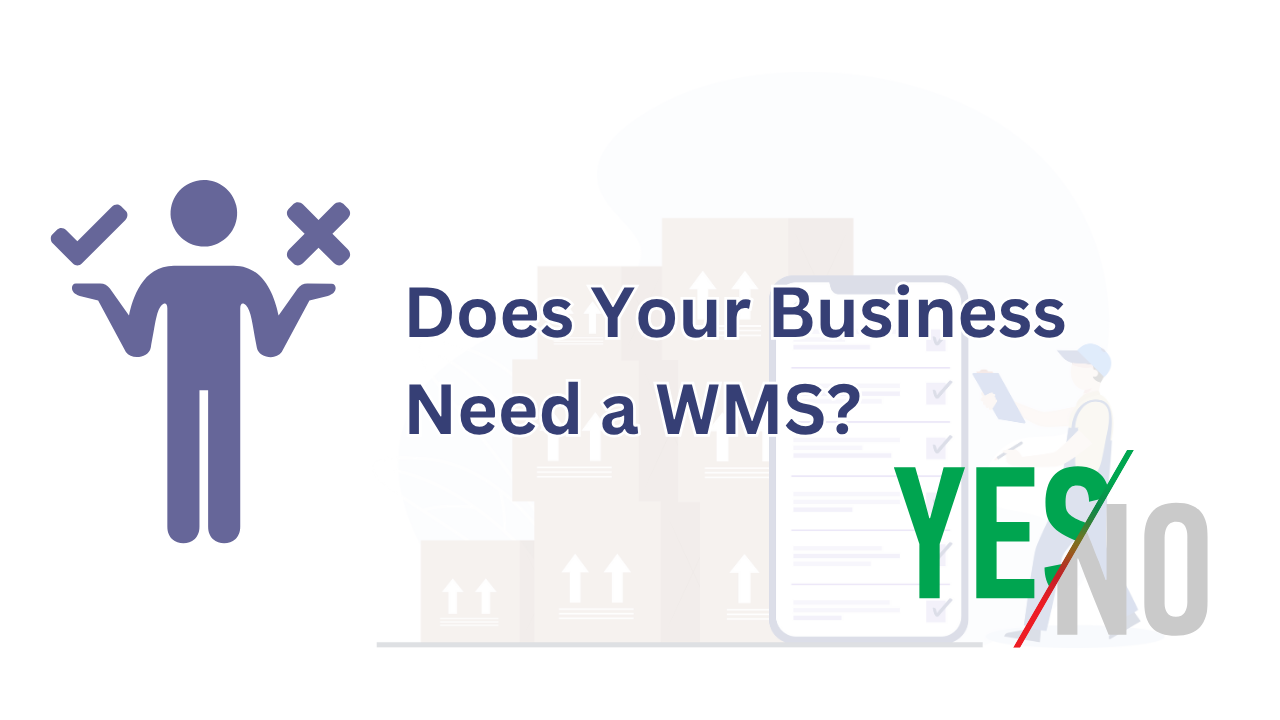BLOG 2025/08/01

While a Warehouse Management System (WMS) is a powerful tool for scaling businesses, it's not a universal necessity for every company. The decision to invest in such a comprehensive system is a matter of timing and specific operational needs.
For many small or specialized businesses, the complexity and cost of a full-fledged WMS can be premature. It’s equally important to recognize when simpler inventory management tools are sufficient. This guide explores the scenarios where your business can likely thrive without a WMS, at least for now.
While a WMS offers significant advantages, it's not a universal necessity. Here are scenarios where your business might thrive without one, or with simpler inventory management tools:
If you handle a small number of SKUs, have low daily order volume, and can easily manage your inventory visually or with a basic spreadsheet or simple inventory management software, a full-fledged WMS might be an unnecessary expense and complexity.
If your core offerings are software, digital downloads, consulting, or other non-physical services, you naturally don't have warehouse inventory to manage and therefore do not require a WMS.
A local retail shop with a tiny backroom stockroom, or a home-based e-commerce business managing inventory from a garage, might find that the inventory features in their Point-of-Sale (POS) system or basic accounting software are sufficient.
If you operate on a drop-shipping basis, you don't physically handle or store inventory. The responsibility for warehousing and fulfillment lies entirely with your suppliers or third-party logistics (3PL) provider.
If you produce goods only after receiving an order and procure raw materials on a just-in-time (JIT) basis with little warehousing of components or finished goods, your primary need might be for production planning software rather than a WMS.
Ultimately, the decision to implement a Warehouse Management System hinges on your unique operational circumstances. For businesses still in their nascent stages—those with simple inventory, low order volumes, or non-physical products—focusing on foundational tracking methods is often the most practical and cost-effective approach.
A WMS may not be necessary today, and that’s perfectly fine. The key is to understand your current needs while keeping the powerful benefits of a WMS in mind as you scale. This foresight will ensure you’re prepared to make the right investment when the time comes to truly optimize your supply chain and unlock greater efficiency.
*The information provided is for general guidance and businesses should assess their specific needs.
For a consultation on WMS, 3PL, 4PL, or any logistics matter, please contact us.

Is It Time for a WMS? 8 Key Signs Your Business is Ready
Manual processes hit their limit, leading to errors and delays. It's time for a WMS!